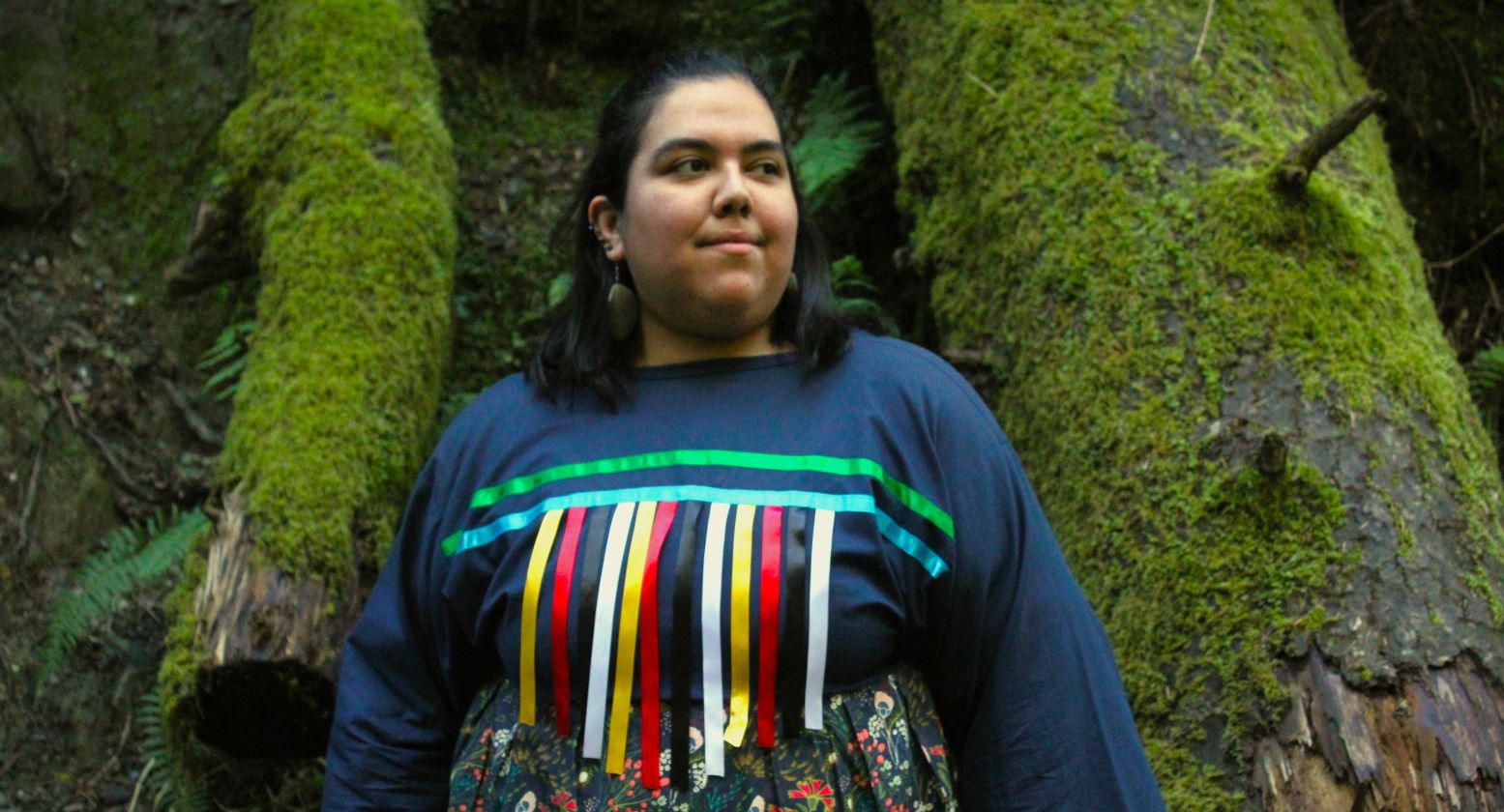
Photo Caption: Lindsey Balidoy
November is Native American History Month and in this issue of Voices from the Field we hear from Lindsey Balidoy, Indigenous educator and 2019-20 Commission student liaison.
Lindsey teaches English, College and Career Readiness, and English
Language Development at Maine Prairie High School in Dixon.
What does National Native American Heritage Month mean to you?
National Native American Heritage Month celebrates Native American voices and sends an important message that Indigenous people (students, educators, leaders, artists
and so much more) are still here, alive and thriving. The Native American identity is not something to be left in history, although the history cannot be ignored as it impacts our communities today. Indigenous people have sovereignty, power, and knowledge
that dates back into time immemorial. Since I was young, I have been in academic spaces where people do not think of an Indigenous person being in that space too. People need to be aware of how language and actions impact others and should empower
and educate themselves to speak up and talk about Indigenous people in the modern day. During National Native American Heritage Month, I feel empowered to share my story and let others know that their voices are valuable and needed.
Why did you become a teacher?
I became a teacher because I have always had a passion for helping others, seeing and understanding different perspectives, and community building. I have always thrived under structure and enjoyed being a leader in the Indigenous communities I
grew up in and joined at UC Davis. I also used to play teacher as a kid, much to the dismay of my friends who had to learn more after a full day of school. My parents instilled in me at a young age that I could be anything I wanted to be, and I wanted
to be a voice for change and an inspiration for others to pursue their passions. Transitioning into education was natural to me, as I got to pursue my passions of literature and literacy development while being the change I wanted to see in the classroom
and representing my community positively.
In what ways do your students inspire you?
My students inspire me every day. I am inspired by the way they show up every day and are open to learning, willing to try, and are
beyond respectful and thoughtful towards others. They always inspire me to better myself and my craft by sharing their insights, experiences, and ideas. Being open and honest with my students creates an open and honest environment, which I think is
the key to learning. I am proud when students feel safe enough to share an answer or ask for help. I am inspired when students share their lives and stories with me. I am inspired when students have the a-ha moments and think of new ideas. Students
are the future.
What would you tell high school or college students who are considering becoming educators?
Education is a profession that you have to be in for the right reasons and is incredibly rewarding when you
are in a supportive environment. Your heart has to be in it and you should be comfortable with examining how to continuously better your craft as an educator. Enjoying the content, having a desire to make genuine connections, tracking growth over
time, and building a strong, safe community are key ideas to enjoying education. The goal should always be a student-centered classroom that promotes student learning and achievement. As a result, students tend to buy-in to the lessons more, have
a higher capacity to persevere, and practice thoughtful decision making. These are all skills that help students grow and flourish into thoughtful adults who are in charge of their own actions. Find the supportive community that is right for you and
your teaching style!
Why did you feel it was important to join the Commission as a student liaison?
It was important to join the Commission as a student liaison because of my time in higher education being the one
of the only Indigenous students in my education classes and my unique role as an Indigenous educator. I knew that my perspective as a first generation, Indigenous woman and scholar would be valuable in a space that historically has harmed the Native
American community through boarding schools and assimilation policies. My life goal is to promote educational equity, which means creating space for all voices to be heard and all backgrounds to be honored. This process must include diverse voices
in leadership positions.
What are your hopes for the future of the teaching profession?
I would really like to see more education about diversity, equity, and inclusion in the classroom and the benefits it has on students.
I think this starts with educating our educators about how to incorporate diverse voices, honoring student voices and experiences, and ensuring that all students are being represented in the classroom year-round. This is especially true for underrepresented
and underserved students who may not be as visible in the classroom. It may be uncomfortable for educators to challenge previously held ideas, but ultimately the entire education community benefits from new and improved methods in the classroom.
Is there anything else you’d like to share?
I am a product of the strong communities I have been involved with, both inside and outside of academia. Educators should never feel like they have to be alone in their
teaching. Education can seem like you are on an island trying to do everything yourself, but ultimately knowing your support systems and reaching out can completely change your experience as an educator. Do not struggle in silence, ask for help!
.png?sfvrsn=c28b72b1_10)
.png?sfvrsn=cd8b72b1_0)